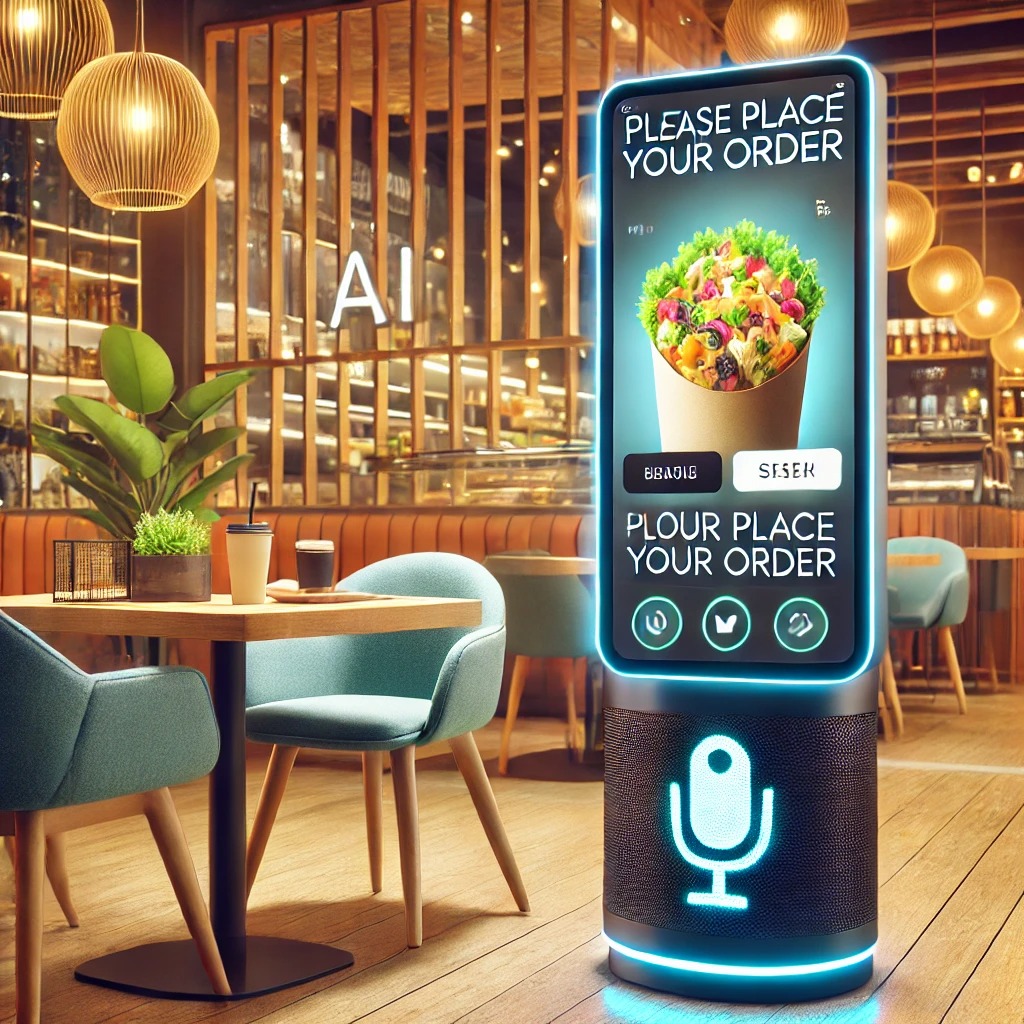Artificial Intelligence is increasingly used in the restaurant industry these days. AI helps restaurants through unique solutions that generally improve the restaurants’ efficiency, reduce operation costs, and enhance customer service. This whitepaper looks at applying 24/7 AI Phone Agent Built for Restaurants through tips, best practices, and recommendations on how to maximize the full benefits of the AI technology. AI now automates repetitive tasks in order to improve how restaurants fundamentally operate and interact with their customers.
To stay ahead in the competitive curve of food service, new and emerging technologies are needed. Artificial Intelligence brings those tools that not only ease the burden of operations and cost but also significantly raise the bar when it comes to offering experiences to customers. The following whitepaper will provide certain guidelines to owners and managers of restaurants on how to effectively implement AI solutions, achieve optimization of operations, and enhance customer satisfaction.
The problems of the restaurants are many, such as high labor costs, inefficiency in operation, and the ever-present demand for excellent customer service. Traditional solutions often do not even completely meet these problems. The AI technology that can solve many of these problems in a multi-dimensional way is one that most restaurant owners don’t know how to use.
AI technologies, such as machine learning, natural language processing, and robotics, find increasing applications in a wide range of industries. AI technologies do efficient work in restaurants, starting from automated ordering to tracking inventory, enabling personalized marketing, and improving chatbots in customer service applications. Understanding the potential of AI and its applications helps restaurant owners make informed decisions and stay competitive.
Key Features of GrubCall.ai’s AI Phone Answering Service
1. Automated Order Taking: AI-powered kiosks and voice assistants can quickly take orders with high accuracy and reduce waiting time while minimizing human errors.
2. Inventory Management: Through past trends data, an AI system would be able to predict inventory needs and reduce food waste by always having enough of the popular items in stock.
3. Scheduling and Workforce Management: With the help of patterns of customer traffic, AI can help optimize personnel schedules to ensure proper staffing during busy periods and avoid overstaffing during slower periods.
Key Benefits of AI Ordering Systems for Restaurants
Labor Savings: It frees restaurants from the drudgery of mundane tasks, essentially order taking and bill payments, indirectly saving labor costs and deploying personnel to higher-value tasks.
Energy Management: AI monitoring and optimization of energy consumption provide a significant cost benefit related to utilities.
Predictive Maintenance: AI can predict equipment failures beforehand and thus reduce downtime. It reduces the cost of maintenance by scheduling repairs at an appropriate time.
Personalization: Analysis by AI will take place on the collected customer usage data to provide more personalized suggestions and promotions. It upgrades their dining experience and secures customer loyalty.
Chatbots and Virtual Assistants: AI-powered bots can handle customer queries round the clock for immediate responses rather than engaging staff personally.
Analytics of Customer Feedback: AI analyzes customer feedback from disparate channels for actionable insights, helping in improving the quality of service and resolving emerging issues with speed.
Start Small: Begin with AI applications in your restaurant that affect the most critical pain points first, such as taking orders or managing inventory. Expand into other areas only when gaining more confidence in using the technology.

Integration with Current Systems: Your AI solutions must be integrated with existing POS and inventory management systems for efficiency.
Personnel Training: Spend money on personnel training to work with AI tools. Proper training in this regard will ensure that your people know how to work with this type of technology and utilize it to the maximum extent.
Monitor and Adjust: Make sure you’re continually monitoring the performance of your AI systems and prepare to make adjustments. The AI technology is constantly in flux, so it is wise to move with it.
Customer Privacy: Be transparent regarding the usage of customer data and hence ensure that you comply with the data privacy regulations. Indeed, trust will be an important prerequisite for having a great relationship with your customers.
What is a Solution for a 24/7 AI Phone Agent Built for Restaurants
1. A fast-food chain hustling all day long introduced kiosks powered with artificial intelligence for ordering purposes, especially at peak hours. This not only helped reduce queues but also cleared the clog of the staff, so they might pay more attention towards preparation and service. As a result, the orders were significantly correct with high customer satisfaction.
2. A mid-sized restaurant employed AI to analyze sales data and predict inventory needs, reducing food waste by 20% and assuring popular dishes were always in stock, hence increasing customer satisfaction and lowering operational costs.
3. One luxurious restaurant used AI to evaluate customer preferences and dining history. Due to personalized promotions and recommendations, repeat customers have increased by 15%, with higher average spending per visit.
AI technology offers a whole lot of opportunities for restaurants—from efficiency improvement to cost reduction and customer service. Small-scale initiation of AI, integration with existing systems, training of staff, and monitoring on an ongoing basis are the viable keystones to restaurants’ successful tapping of AI power. Transformation in embracing AI means or will not be limited to just adopting new technologies; rather, it is about a change in how restaurants think, function, and operate with their customers.
– “How AI Affects the Restaurant Industry,” Restaurant Technology Journal, 2023
– “AI in Inventory Management: Reducing Food Waste and Costs,” Food Service Magazine, 2023
– “AI-Powered Customer Experiences,” Customer Service Weekly, 2023
– “How AI Is Automating Restaurant Operations,” Industry Insider, 2023
